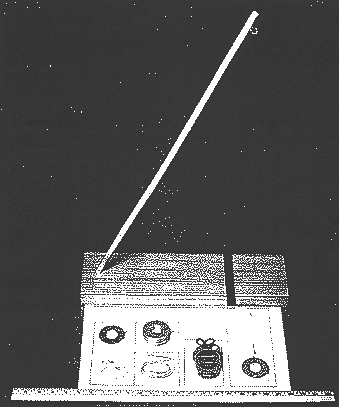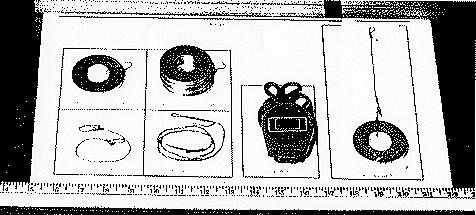 |
 |
|
|
|
|
6th Grade Performance Task Description:Students are instructed on how to create a pendulum and measure the periodicity of the pendulum, using four different combinations of string. Students are also asked which influences the time more - the length of the string or the weight at the end of the pendulum. This task assesses students' abilities to observe and measure variables, and select and describe results. Overall Task Content Area:
Specific Knowledge Areas:
Performance Expectations:
National Science Education Standards:8 B PS 2: Motions and forces: Grades 5-8 8 A SI 1: Abilities necessary to do scientific inquiry:
Grades 5-8 1.4 Develop descriptions, explanations, predictions, and models using evidence. Students should base their explanation on what they observed, and as they develop cognitive skills, they should be able to differentiate explanation from description — providing causes for effects and establishing relationships based on evidence and logical argument. This standards requires a subject knowledge base so the students can effectively conduct investigations, because developing explanations establishes connections between the content of science and the contexts within which students develop new knowledge. (Use the "hot" link on the PALS home page to check the full text of related National Science Education Standards, if desired.) National Council of Teachers of Mathematics:DAP1: Formulate questions that can
be addressed with data and collect, organize, and display relevant
data to answer them: AL1: Understand patterns, relations and functions:
DAP3: Develop and evaluate
inferences and predictions that are based on data: PS2: Solve problems that arise in mathematics
and in other contexts: RP2: Make and investigate mathematical
conjectures: CNX1: Recognize and use connections among
mathematical ideas: General Instructions to the Teacher:Students will be working individually during this exercise. Students should be ready to work as soon as the period begins. The materials should be set out at each lab station, if possible. A central supply area, if needed, should be easily accessible. All supplies should be clearly labeled. Materials for "Pendulum":At each station students should have:
Safety:
Extensions/Modifications:None
|

